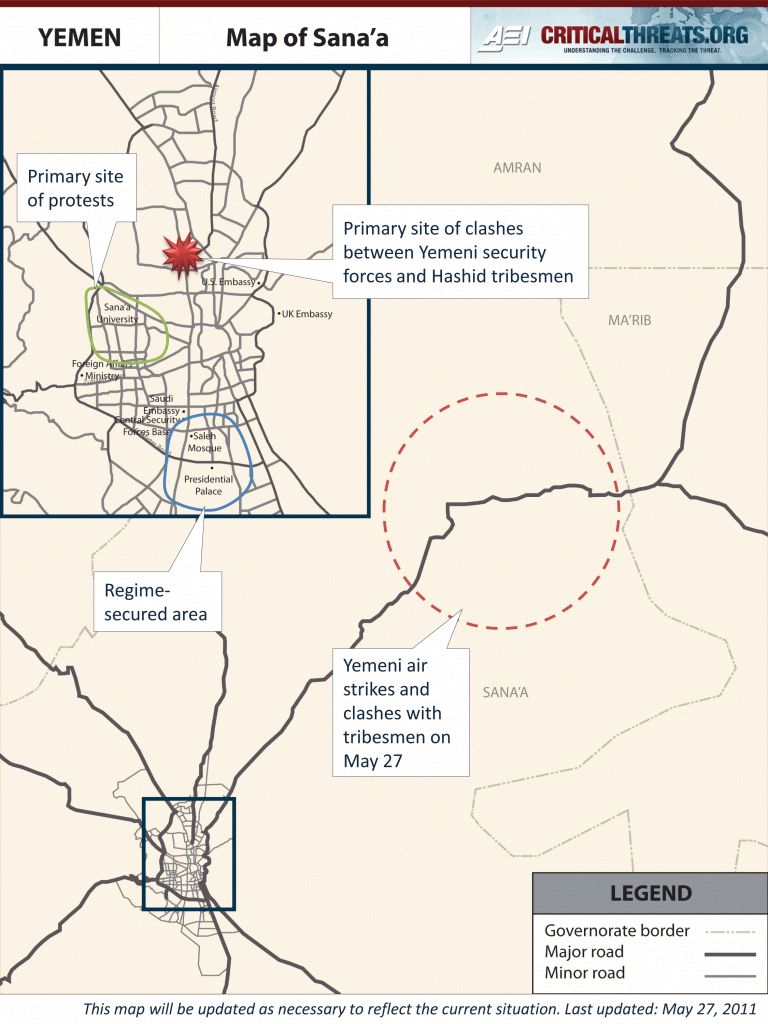The ceasefire in the capital is tenuous and forces are positioned for further clashes. The opposition now seeks President Ali Abdullah Saleh’s immediate resignation, without any conditions. Saleh is unlikely to accept that demand.
Sporadic clashes occurred after a deadline for a peace agreement expired and both sides remain positioned for further fighting. Hashid tribesmen backing Saleh's opponents are gathering at four locations surrounding Sana’a and at the house of tribal leader Sheikh Sadiq al Ahmar in the capital. Pro-Saleh security forces, including snipers, occupy positions around government buildings, the airport, and officials’ houses.
Hashidi tribal leaders are apparently trying to unify the opposition against Saleh and bring the armed forces to support the revolution. Sheikh Sadiq al Ahmar released an open letter, saying that the army and the Republican Guard did not belong to a single individual or family and should stand with the Yemeni people, presumably against Saleh. His brother, Hussein al Ahmar, said his Hashidi tribesmen were prepared to cooperate with other opposition groups, including the Southern Movement. He demanded that the president resign immediately without any conditions.
The fighting that broke out in Nihm district, northeast of Sana’a, has broadened the conflict. Tribesmen (not affiliated with the Hashid confederation) took control of at least two military bases. The Yemeni air force bombed the sites. Dozens of people were killed in the fighting, including four tribal leaders.
The continued unrest threatens Yemen’s already-weak economy. Yemen’s trade minister reported that the past three months of upheaval have cost the country as much as $5 billion. Yemen began importing fuel and petroleum derivatives in April because tribes hostile to Saleh had shut down the Ma’rib oil pipeline. To date, these imports have cost $1 billion.
The escalation of fighting and the beginnings of tribal mobilization for internal conflict, together with the growing distance between the opposition's demands and Saleh's position, significantly increases the likelihood of widespread civil war in Yemen.
If you would like to receive these updates by email, please sign up here.

